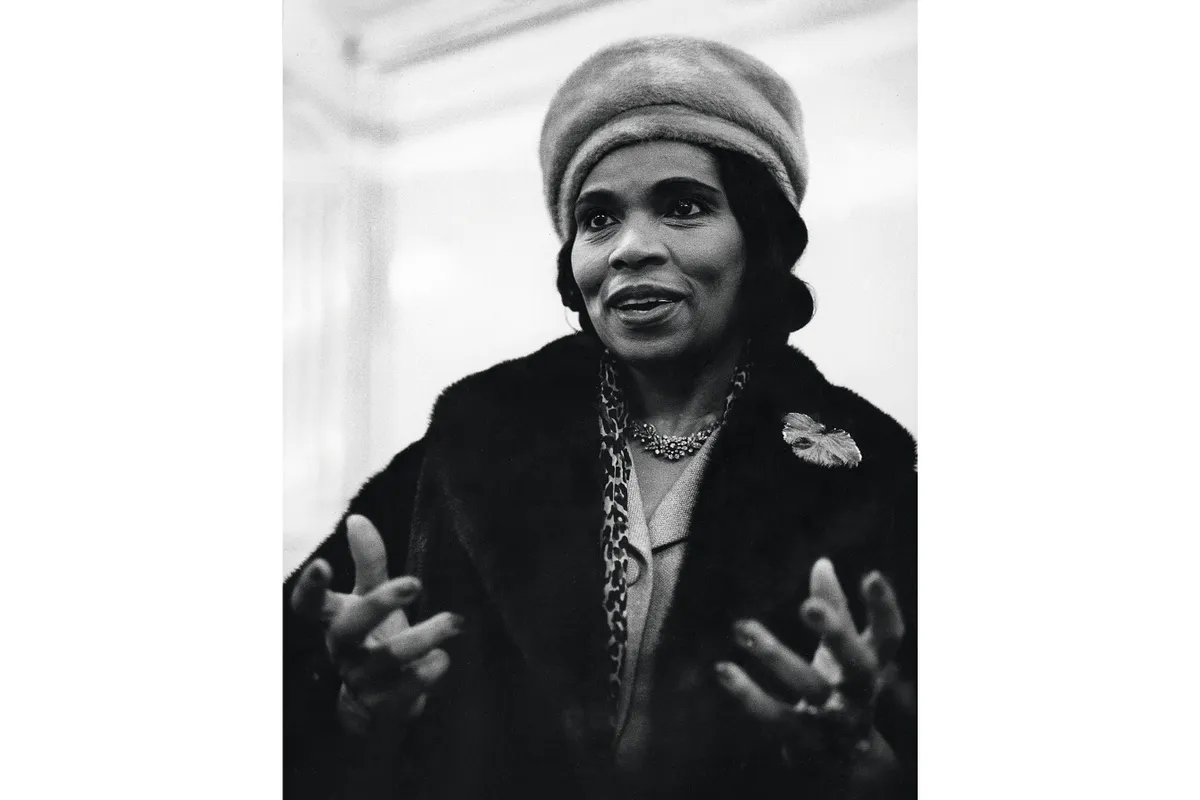The contralto chosen to sing 'The Star-Spangled Banner' at JFK's inauguration was African-American Marian Anderson.
The occasional wobble in her voice might have indicated a career that was past its peak (though the cold and enormity of the occasion probably didn’t help) but the 63-year-old Anderson was still a figure who inspired millions, not just as a performer but as a political campaigner too.
Who was Marian Anderson?

(Photo by Erich Auerbach/Getty Images)
(Photo by Erich Auerbach/Getty Images)
Hailing from Philadelphia, Anderson had been propelled to nationwide fame back in 1939 when her cause as an African-American performer was taken up by the First Lady, Eleanor Roosevelt. Though recognised both in her home country and beyond as an outstanding singer and lauded by the likes of conductor Arturo Toscanini, who described her voice as one that was ‘heard once in 100 years’, Anderson had found her attempts to give a recital at Washington’s Constitution Hall blocked by its owners, The Daughters of the American Revolution (DAR), who banned black performers from appearing there. Disgusted, Eleanor Roosevelt resigned her DAR membership and helped organise a recital for Anderson on the steps of the Lincoln Memorial on Easter Sunday. The recital drew a live audience of 75,000, and was broadcast on TV.
If Anderson’s high profile immediately opened a number of previously closed doors – her invitation to sing at Constitution Hall, in front of an integrated audience, finally came in 1943 – the wait to appear at the New York Met would only end in 1955, when she sang the part of Ulrica in Verdi’s Un ballo in maschera, the first African-American to appear at the venue.
Her first New York Met appearance would also be her last, but her importance as a symbolic figure continued to be recognised by those at the top. Although a member of the Democrats, she was invited in January 1957 to sing at the second inauguration of Republican president Dwight Eisenhower. It was Eisenhower, too, who made her a US goodwill ambassador – a post that involved a 24-concert tour of India and the Far East – and then appointed her as a delegate to the UN.
Anderson finished her farewell tour as a singer at Carnegie Hall in April 1965, but continued her civil rights work. In 1991, two years before her death, she was awarded a Grammy for Lifetime Achievement.
We named Marian Anderson one of the greatest contraltos of all time
Top image by Getty Images